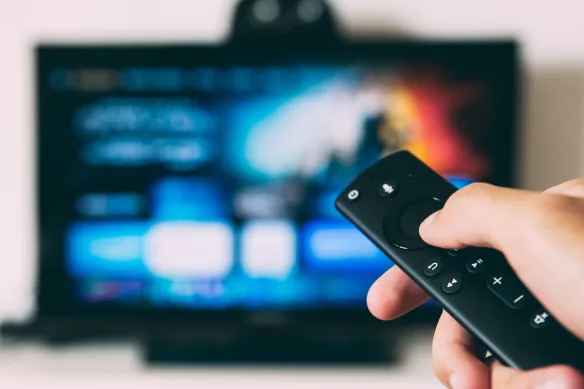Australians love their entertainment. We love our sporting games and we love our news programs on TV. For decades, we've benefited from a robust community minded approach by free-to-air channels. Whether it's Channel 7, 9 or 10, SBS or the ABC, Australians of all races, cultures and demographics have enjoyed free access to broadcasting. But, in the last decade, we've seen a dramatic change in the way that Australians use our TV services. The days of old—my day—of the family sitting around watching the seven o'clock news have changed dramatically. Recently, we watched the Matildas' brilliant win over Denmark. Over 3.5 million Australians watched that on free-to-air TV. I don't think there was a member of my family, over four generations, that didn't watch it, either at the game or on free-to-air TV. It brought us all together. In fact, I've seen very little in the last few years that brought Australia together like the game on TV did last night. This is important not just for our local media groups but also because the Australian broadcasters that bring us free-to-air TV are helping us to access a whole range of issues, including women's sport, in an important moment in our history, by providing it free-to-air.
In my day, every home had a television. We watched free-to-air TV. We had our channels to choose from. But, recently, there has been a tsunami of different streaming services that have come into our lives, often costing significant amounts of money. In my electorate of Macarthur, which has been struggling with cost-of-living issues over the last four or five years, these streaming services can be extraordinarily expensive, and many people are dropping out of streaming services. Our free-to-air TV is now coming under threat from overseas interests that wish to capitalise on new technology, to push the free-to-air broadcasters to the absolute outer limits and their locally made content well down the pecking order of both accessibility and visibility. For example, the pay-for-space system that television manufacturers such as Samsung and LG use in their smart TV systems allows apps such as Netflix, Disney and Amazon Prime to be placed on the home screen in very prominent positions. The free-to-air apps are way down the list and not very visible. That is a design feature of the new TVs produced by the multinational companies. Nowhere on their systems is a visible or easily accessible option available for Australian broadcasters and their respective free-to-air TV apps. If an individual wants to add these as options, they must go through a very lengthy installation process, usually involving an aerial, which involves searching for those apps, downloading them and then installing them. It is very complicated for some people, particularly older people. Even when you do download the apps, they're placed on the home page far away from the likes of the Samsung, LG and Netflix apps and streaming services. The TV companies know this and exploit it. It undoes decades of what Australians of various generations have come to know—that, when you turn on your TV, local free-to-air channels instantly appear. No longer.
Furthermore, it has been shown that one in three Australians don't know how to download the apps and activate them on their new TV systems, according to independent research conducted by RMIT. This equates to almost seven million Australians, which is a very concerning number, who are being actively locked out of accessing Australian free-to-air content due to foreign TV manufacturers selling vital space on their home screens to the highest—usually overseas—bidder. This is a major issue, and it means that local TV services and local content—and local sporting content—are disappearing from our local screens. I'm a rugby tragic. I want to watch rugby on free-to-air TV. I think that's really important to sports fans, no matter what code. I'm further concerned that, with these new systems, we are going to be seeing less and less local content. That's very important for my electorate of Macarthur.



